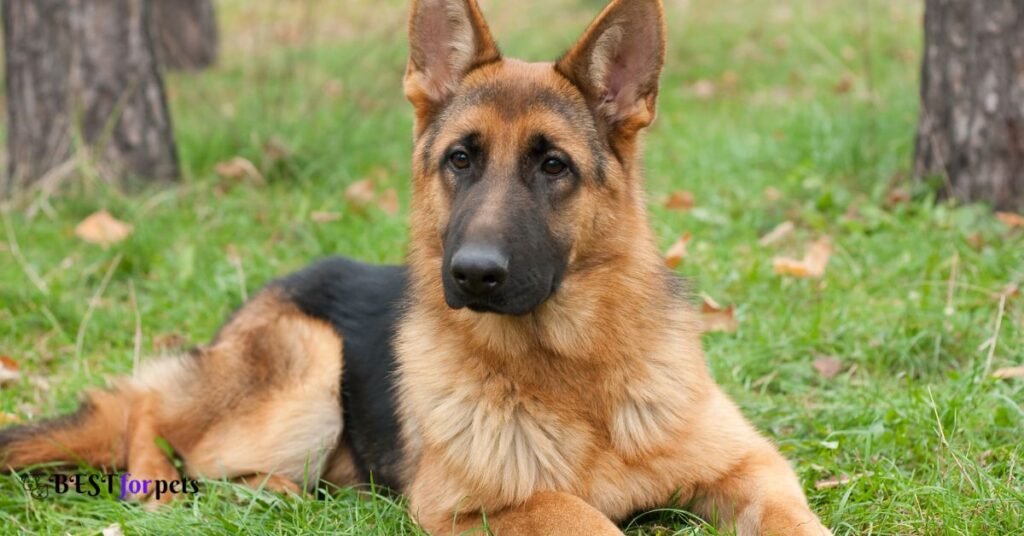Pit Bull Vs German Shepherd
Pitbull vs German Shepherd: History and Origins
Pit Bull:The history of the Pit Bull dates back to the early 19th century in the United Kingdom. They were originally bred for bull-baiting, a sport where dogs would fight bulls in arenas. When bull-baiting was banned, Pit Bulls were transitioned into farm dogs and were used for tasks like herding, hunting, and guarding.
The breed eventually made its way to the United States, where they were commonly used as working dogs on farms and ranches. Over time, they gained popularity as loyal and protective family pets.
German Shepherd: The German Shepherd breed was developed in Germany in the late 19th century. Captain Max von Stephanitz is credited with breeding the first German Shepherd and establishing the breed standard. Originally bred as herding dogs, German Shepherds excelled in tasks such as guiding and protecting sheep.
Their intelligence, versatility, and trainability led to their use in various working roles, including police work, search and rescue, and as service dogs. Today, German Shepherds are renowned for their intelligence, loyalty, and versatility in various fields.
Pit Bull vs German Shepherd: Appearance and Characteristics
Pit Bulls are medium-sized dogs with well-muscled and compact body. They have a broad, brick-shaped heads and a strong jaw. Their short coat comes in various colors and can be smooth or slightly coarse. Pit Bulls have a strong and athletic build, giving them agility and power. They typically weigh between 30-70 pounds (13-32 kg) and stand around 17-21 inches (43-53 cm) tall at the shoulder.
German Shepherds are large and muscular dogs with a well-proportioned and sturdy build. They have a distinctively shaped head with a strong jaw and almond-shaped eyes. Their double coat is thick and dense, providing insulation and protection from the elements.
German Shepherds come in various colors, with the most common being black and tan or sable. Males typically weigh between 65-90 pounds (29-41 kg), while females weigh between 50-70 pounds (23-32 kg). They stand around 22-26 inches (56-66 cm) tall at the shoulder.

Pit Bull vs German Shepherd: Temperament
Pit Bull: Pit Bulls, when properly bred and raised in a loving environment, can be affectionate, loyal, and friendly towards their families. They are known for their love of people and their eagerness to please their owners. Pit Bulls are often described as “people-oriented” and are known to form strong bonds with their human companions.
They can be playful and energetic, enjoying activities such as fetch and agility. However, it’s important to note that Pit Bulls can have a strong prey drive and potential dog aggression, which requires careful socialization, training, and responsible ownership.
German Shepherd: German Shepherds are renowned for their loyalty, intelligence, and protective nature. They are typically reserved with strangers but form strong bonds with their families. German Shepherds are known for their versatility and excel in various roles, including working, obedience, and as family pets.
They are often described as confident, courageous, and eager to learn. German Shepherds require mental stimulation and physical exercise to prevent boredom and potential behavioral issues. Early socialization and consistent training are essential to ensure they grow up to be well-mannered and well-adjusted dogs.

Pit Bull Vs German Shepherd: Health
Pit Bulls are generally considered to be a healthy breed. However, like all dogs, they are prone to certain health conditions. Some of the common health issues that can affect Pit Bulls include hip dysplasia, skin allergies, heart disease, and certain types of cancers. Regular veterinary check-ups, a balanced diet, and regular exercise can help maintain their overall health. Responsible breeders often perform health screenings to ensure they are breeding from healthy stock.
German Shepherds are also generally healthy dogs, but they can be susceptible to certain health conditions. Some of the common health issues seen in German Shepherds include hip and elbow dysplasia, degenerative myelopathy, bloat, allergies, and certain types of cancers. Regular exercise, a balanced diet, and routine veterinary care are crucial for their well-being. It’s important to note that responsible breeders conduct health screenings to reduce the risk of passing on genetic health problems.
Pit Bull Vs German Shepherd: Trainability
Pit Bulls are intelligent dogs that respond well to positive reinforcement-based training methods. They are eager to please their owners and have a strong desire to learn and work. With consistent and patient training, Pit Bulls can excel in obedience, agility, and various dog sports.
However, it’s important to note that Pit Bulls can be strong-willed and may require firm and consistent leadership. Early socialization is crucial to expose them to different people, animals, and environments, helping them become well-rounded and well-behaved dogs. With proper training techniques and early socialization, Pit Bulls can be obedient, responsive, and eager learners.
German Shepherds are highly intelligent and trainable dogs. They are known for their versatility and are often used in various working roles such as police work, search and rescue, and service work. German Shepherds thrive on mental stimulation and require structured training to channel their intelligence and energy effectively. They respond well to positive reinforcement methods, including rewards and praise. German Shepherds excel in obedience training and can quickly learn complex commands.
However, their intelligence also means they can become bored with repetitive training, so incorporating new challenges and tasks is essential. Consistent training, early socialization, and clear leadership are necessary for German Shepherds to reach their full potential as well-behaved and obedient dogs.
Pit Bull Vs German Shepherd: Adaptability
Pit Bulls are generally adaptable dogs that can adjust well to different living environments, including apartments or houses with yards. They have a moderate energy level and require regular exercise and mental stimulation to prevent boredom. Pit Bulls can adapt to different climates, but it’s important to provide appropriate shelter and ensure they are not exposed to extreme temperatures.
They are social dogs that enjoy spending time with their families and may suffer from separation anxiety if left alone for long periods. With proper care, exercise, and attention, Pit Bulls can adapt to various lifestyles and environments.
German Shepherds are adaptable dogs that can thrive in different environments, but they generally do best in homes with sufficient space and access to outdoor areas. They are active dogs that require daily exercise and mental stimulation to prevent behavioral issues. German Shepherds are not well-suited for apartment living unless provided with ample opportunities for physical and mental activities.
They can adapt to different climates, but they prefer cooler temperatures due to their double coat. German Shepherds form strong bonds with their families and may not do well if left alone for extended periods. Their adaptability is enhanced through regular exercise, training, and socialization to ensure they are well-adjusted and balanced dogs.
Pit Bull Vs German Shepherd: Nutrition
Pit Bulls:
Pit Bulls have moderate energy requirements and typically thrive on a balanced and high-quality diet. Their nutritional needs can vary based on their age, activity level, and overall health. It’s important to feed Pit Bulls a diet that is appropriate for their size and age, providing a mix of high-quality protein, healthy fats, and essential nutrients. Consultation with a veterinarian can help determine the specific nutritional needs of an individual Pit Bull and guide you in selecting the right type and amount of food. Regular monitoring of their weight and body condition is crucial to ensure they maintain a healthy weight and avoid obesity.
German Shepherds:
German Shepherds have higher energy requirements compared to Pit Bulls due to their active nature. They require a diet that is rich in protein, healthy fats, and essential nutrients to support their muscle development and overall health. German Shepherds may benefit from diets that contain joint-supporting ingredients such as glucosamine and chondroitin to promote healthy joints, as they are prone to hip and elbow dysplasia.
It’s important to feed them appropriate portions based on their age, size, and activity level, as German Shepherds can be prone to weight gain if overfed. Regular monitoring of their weight, along with consultation with a veterinarian, can help ensure they receive a nutritionally balanced diet to support their specific needs.
Frequently Asked Questions
Are Pit Bulls aggressive?
Pit Bulls, like any other dog breed, can display aggression if not properly trained, socialized, or cared for. However, with responsible ownership, proper training, and socialization, Pit Bulls can be loving, well-behaved pets.
Can German Shepherds be aggressive?
German Shepherds have a protective nature and can be wary of strangers. However, aggression is not a default trait of the breed. Proper training, socialization, and responsible ownership are key to ensuring a well-behaved and balanced German Shepherd.
Are Pit Bulls good with children?
Pit Bulls can be good family pets and are known for their loyalty and love for their families. However, due to their strength and energy levels, supervision and proper socialization are necessary when interacting with children to prevent any potential accidents or misunderstandings.
Are German Shepherds good with children?
German Shepherds can be excellent family dogs and are often protective of their families, including children. With proper socialization and supervision, German Shepherds can form strong bonds with children and be gentle and loving companions.
Are Pit Bulls dangerous?
Pit Bulls, like any other breed, can pose a risk if not properly trained, socialized, or handled. It’s important to remember that individual behavior can vary within a breed. Responsible ownership, training, and socialization are crucial for raising a well-behaved and balanced Pit Bull.
Are German Shepherds dangerous?
German Shepherds are not inherently dangerous. However, their protective instincts, intelligence, and size mean that they require proper training, socialization, and responsible ownership. With appropriate care and training, German Shepherds can be loyal, well-behaved companions.

